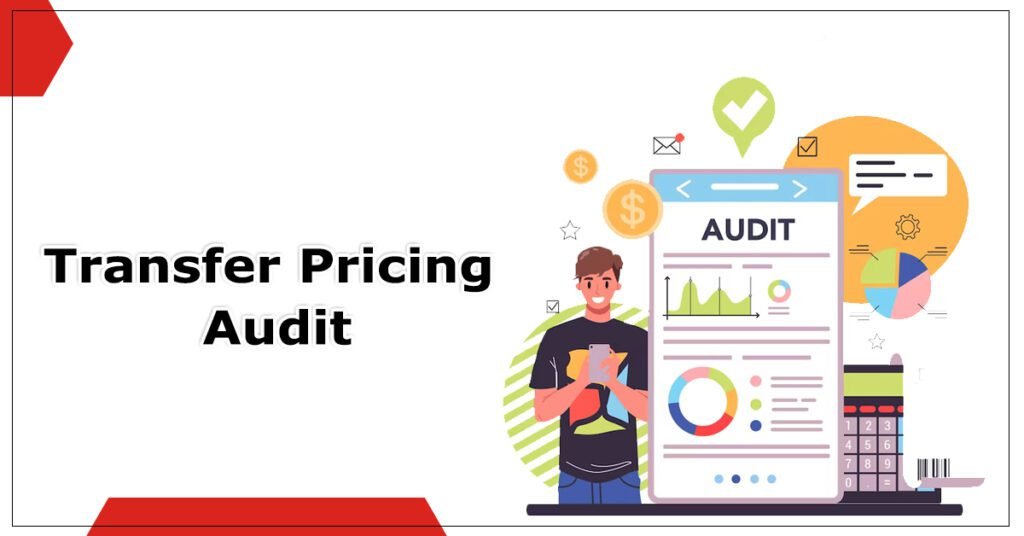The United Arab Emirates (UAE) has rapidly emerged as a global business hub, offering a tax-friendly environment, world-class infrastructure, and access to a vast market in the Middle East. With its business-friendly regulations and low corporate tax rates, the UAE has attracted numerous multinational companies seeking to capitalize on these advantages. However, the UAE’s increasing focus on tax compliance has raised challenges for these corporations, particularly in the area of transfer pricing audits.
What is Transfer Pricing?
Transfer pricing refers to the prices at which goods, services, and intellectual property are traded between entities that are part of the same multinational corporation (MNC). For example, when one branch of a multinational corporation sells products or services to another branch in a different country, the price at which the transaction is set is called the transfer price.
These transfer prices have the potential to be manipulated in ways that minimize a company’s overall tax burden. In response, countries around the world have introduced transfer pricing rules to ensure that transactions between subsidiaries are priced according to market rates—known as the “arm’s length principle.”


The UAE’s Shift Toward Transfer Pricing Regulations
Until recently, the UAE had relatively lax transfer pricing rules compared to other jurisdictions. However, with the growing importance of the UAE as an international financial center and in response to global pressures from organizations like the Organisation for Economic Co-operation and Development (OECD), the UAE has made significant strides in tightening its transfer pricing regulations.
The introduction of the Economic Substance Regulation in 2019 and the implementation of VAT in 2018 marked the beginning of a broader effort to align with international tax standards. In addition, the UAE has committed to adopting OECD’s Common Reporting Standard (CRS) and Base Erosion and Profit Shifting (BEPS) framework to enhance tax transparency and combat harmful tax practices.

Transfer Pricing Rules and Audits in the UAE
In 2020, the UAE introduced transfer pricing documentation requirements for businesses operating within the country. These rules are in line with the OECD’s recommendations and are part of the country’s commitment to international tax standards. The regulations require multinational companies to submit comprehensive documentation regarding their intercompany transactions and transfer pricing arrangements, which must adhere to the arm’s length principle. The key aspects of UAE’s transfer pricing rules include:
- Documentation Requirements: Businesses are required to maintain detailed transfer pricing documentation, including reports that demonstrate compliance with the arm’s length principle.
- Country-by-Country Reporting (CbCR): Multinational enterprises with annual consolidated revenue exceeding AED 3.15 billion (USD 857 million) are obligated to provide country-by-country reports. This reporting outlines the global allocation of income, taxes paid, and business activities by each jurisdiction in which the company operates.
- Advance Pricing Agreements (APA): The UAE offers taxpayers the option to enter into advance pricing agreements with tax authorities to obtain clarity on their transfer pricing arrangements in advance of any audit.
- Audit Procedures: The UAE tax authorities have increasingly focused on transfer pricing audits to ensure compliance. These audits assess whether businesses have priced their intercompany transactions in accordance with the arm’s length principle.
Challenges Faced by Multinationals During Transfer Pricing Audits
While the UAE’s transfer pricing regulations provide clarity and help prevent tax avoidance, they also present challenges for multinational corporations. These challenges range from complexities in documentation to navigating the evolving regulatory landscape.
- Compliance with Documentation Requirements
One of the primary challenges faced by multinationals is the obligation to prepare comprehensive transfer pricing documentation. The documentation requirements are extensive and require companies to gather significant amounts of data related to their global operations, pricing policies, and business strategies. Many businesses may find it difficult to keep track of all this data, especially when operating in multiple jurisdictions with differing tax laws. In addition, failing to submit proper documentation could result in hefty penalties or the imposition of adjustments by the UAE tax authorities. - Adhering to the Arm’s Length Principle
The arm’s length principle requires that transfer prices be set as if the transactions were occurring between unrelated parties in a competitive market. Determining the appropriate arm’s length price can be a complex task, as it requires a deep understanding of market conditions, industry benchmarks, and financial metrics. Multinationals must ensure that their intercompany pricing policies align with this principle, which can often involve intricate analyses and adjustments. - Risk of Transfer Pricing Adjustments
When tax authorities scrutinize intercompany transactions during audits, there is always the risk that transfer pricing adjustments will be made. These adjustments can increase the tax burden for the company and potentially lead to double taxation if other jurisdictions also challenge the pricing of the same transactions. The lack of harmonized transfer pricing rules between jurisdictions can complicate matters and expose multinationals to the risk of increased costs and tax disputes. - Navigating Complex International Regulations
Multinationals operating in the UAE often face the challenge of navigating a complex web of international tax rules and regulations. The UAE’s alignment with OECD standards brings it closer to global best practices, but this can create discrepancies with countries that have different tax systems or interpretations of transfer pricing rules. Inconsistencies between UAE regulations and those in other jurisdictions where the company operates may lead to confusion or disputes over pricing arrangements. - Lack of Experienced Tax Professionals
The increased focus on transfer pricing audits in the UAE means that companies need to employ experienced tax professionals who are familiar with both local regulations and international standards. Unfortunately, there is a shortage of professionals with the right skill set, making it difficult for some companies to ensure full compliance with transfer pricing rules. - Potential Penalties and Reputational Risks
Failure to comply with transfer pricing regulations can result in severe penalties, including fines and back taxes, and can tarnish a company’s reputation. Multinational companies that fail to provide the necessary documentation or incorrectly price their transactions face financial risks as well as potential reputational damage in the marketplace.
Mitigating the Risks of Transfer Pricing Audits
To navigate the challenges of transfer pricing audits in the UAE, multinational companies can take several steps to ensure compliance and reduce the risk of penalties:
- Regular Review of Transfer Pricing Policies: Businesses should regularly review their transfer pricing policies to ensure they align with local regulations and global standards. This includes conducting arm’s length analyses and benchmarking intercompany prices against those of independent entities.
- Maintain Thorough Documentation: Multinationals must ensure they maintain accurate and detailed documentation that supports their transfer pricing arrangements. This documentation should include financial statements, contracts, and any other relevant evidence.
- Consider Advance Pricing Agreements (APA): Entering into an APA with the UAE tax authorities can provide certainty around transfer pricing arrangements and minimize the risk of future disputes or audits.
- Engage Experienced Tax Advisors: Multinational corporations should engage tax professionals who are well-versed in transfer pricing regulations and have experience working with the UAE tax authorities.
Conclusion
The UAE’s growing focus on transfer pricing audits poses significant challenges for multinational companies, from navigating complex regulations to complying with documentation requirements. However, these challenges can be mitigated with proper planning, documentation, and the assistance of experienced tax professionals. By staying ahead of the regulations and ensuring transparency, businesses can minimize the risks of costly audits and maintain their compliance in an increasingly tax-conscious environment. As the UAE continues to align with international standards, multinational corporations must stay informed about the evolving regulatory landscape to avoid pitfalls and ensure continued success in the region.
Do follow Uae stories for more Updates
Landmark Jebel Ali: A Hub of Growth and Connectivity in Dubai














